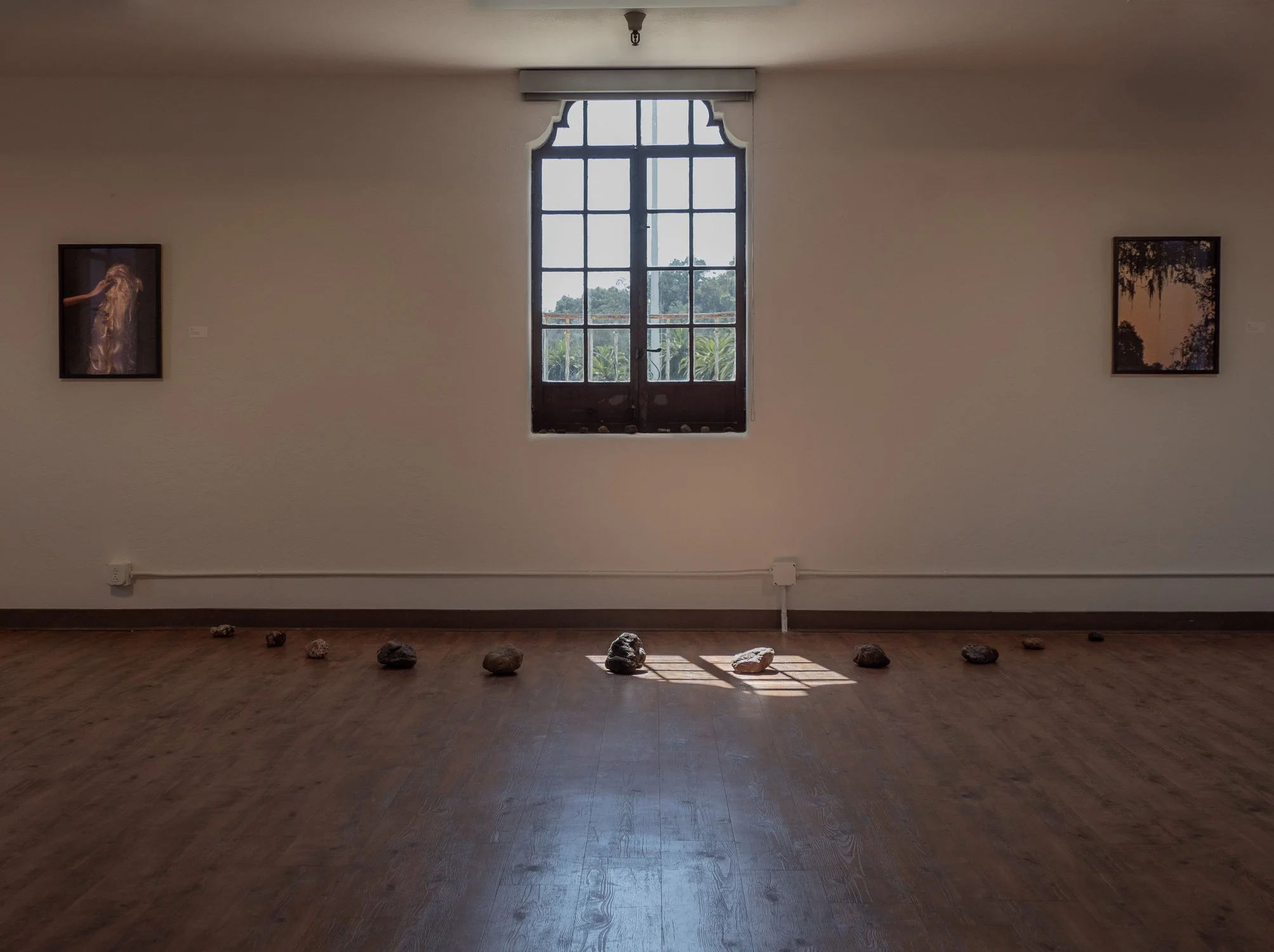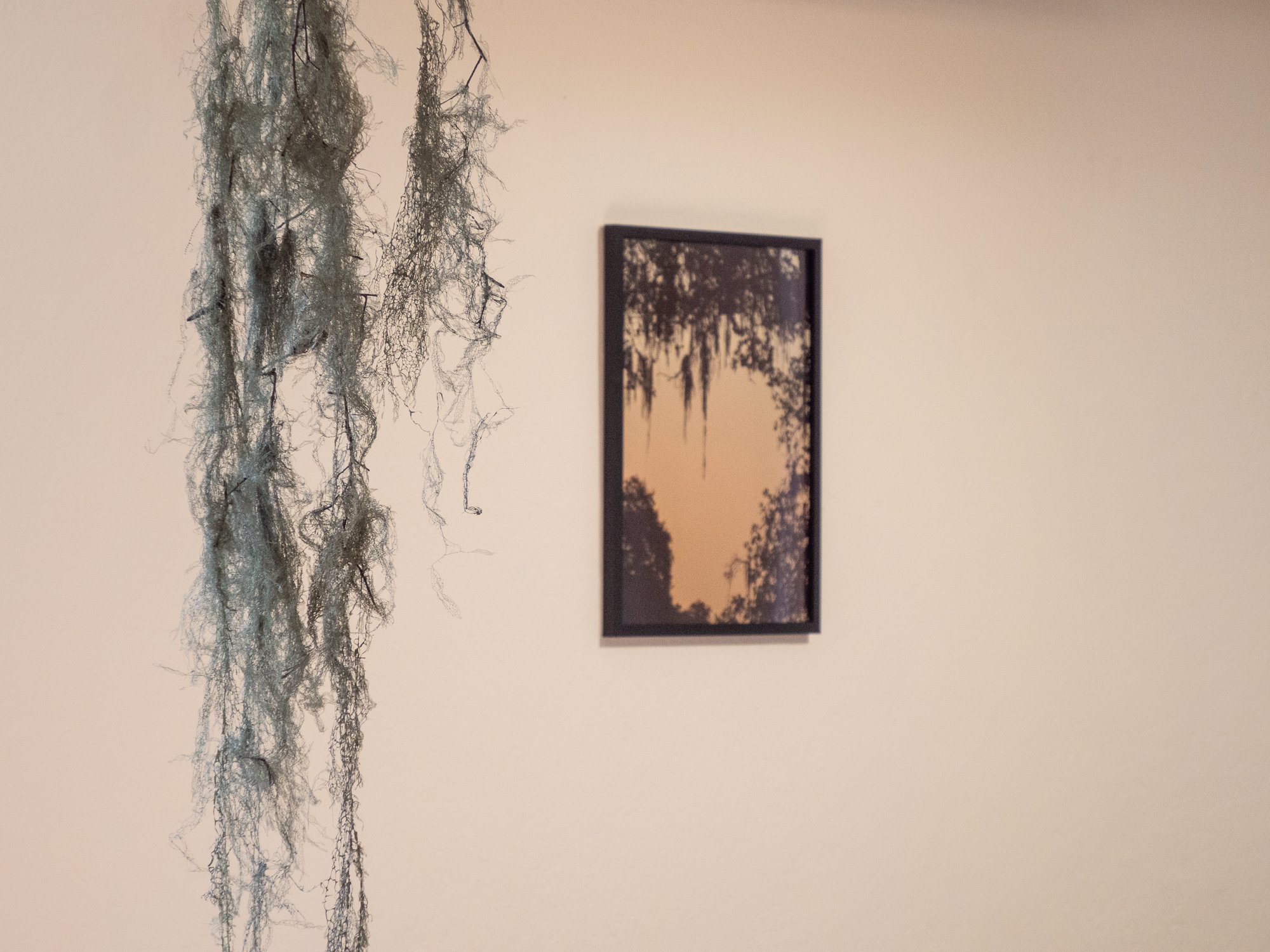Black River (2020-2024)
Installation views from the solo exhibition Black River, Marin Museum of Contemporary Art, Novato, CA
Wildfires and drought are a constant reminder of our fragile existence in the Alexander Valley of Northern California. The oak and madrone trees that survived the region's fires are draped in lace lichen and surrounded by poison oak. Over the years the river slowly moved east and the creek ran dry.
While isolating in our remote house during the early days of the pandemic I began photographing my daughter; her boredom and also her resilience. A blond wig, that she coveted when little, became the inspiration for an ambiguous drama created with things found around the house. On hot days I twisted her hair and at night we slept in one bed escaping the outside world. Evening walks to the river generated both solace and fear in a silent landscape. I read about the history of photography and its complicity in white supremacy and the creation of myth; and I worried about raising a biracial child in a country that has never collectively faced its racist past.
Black River is a memory of our time together and our experiments with photography. It senses how an Arcadian dreamscape is harnessed by the reality of a larger world and how a violent history can impose a narrative on the landscape and the body.



























